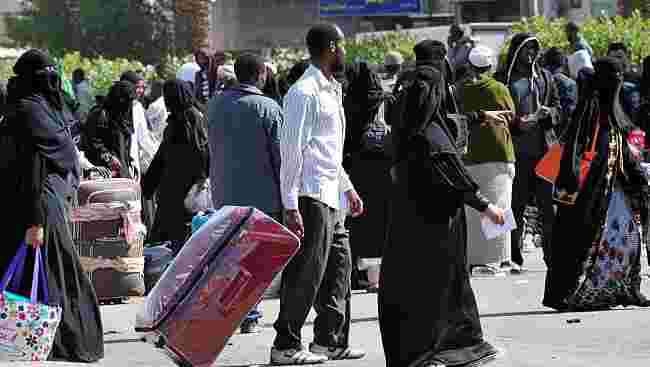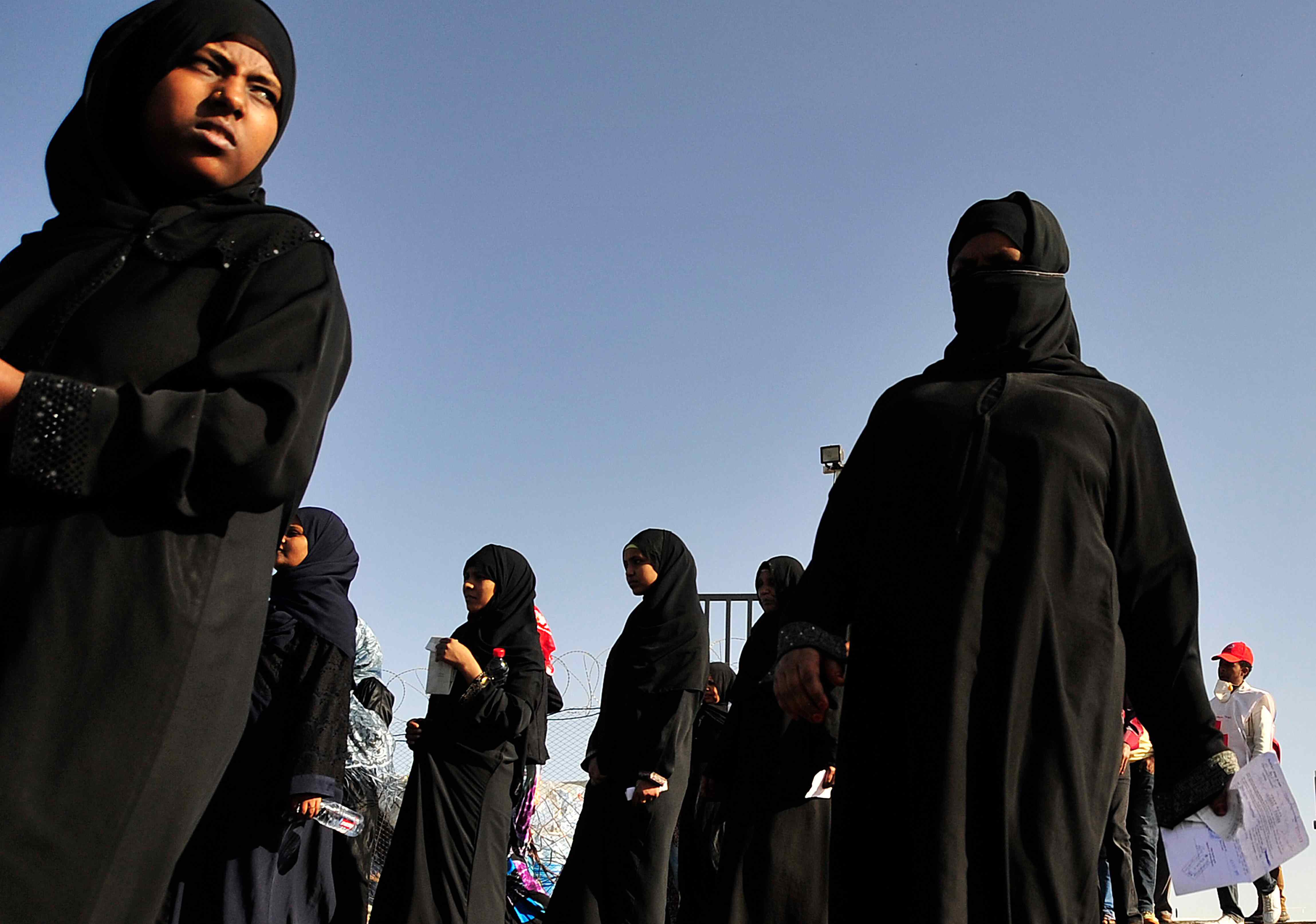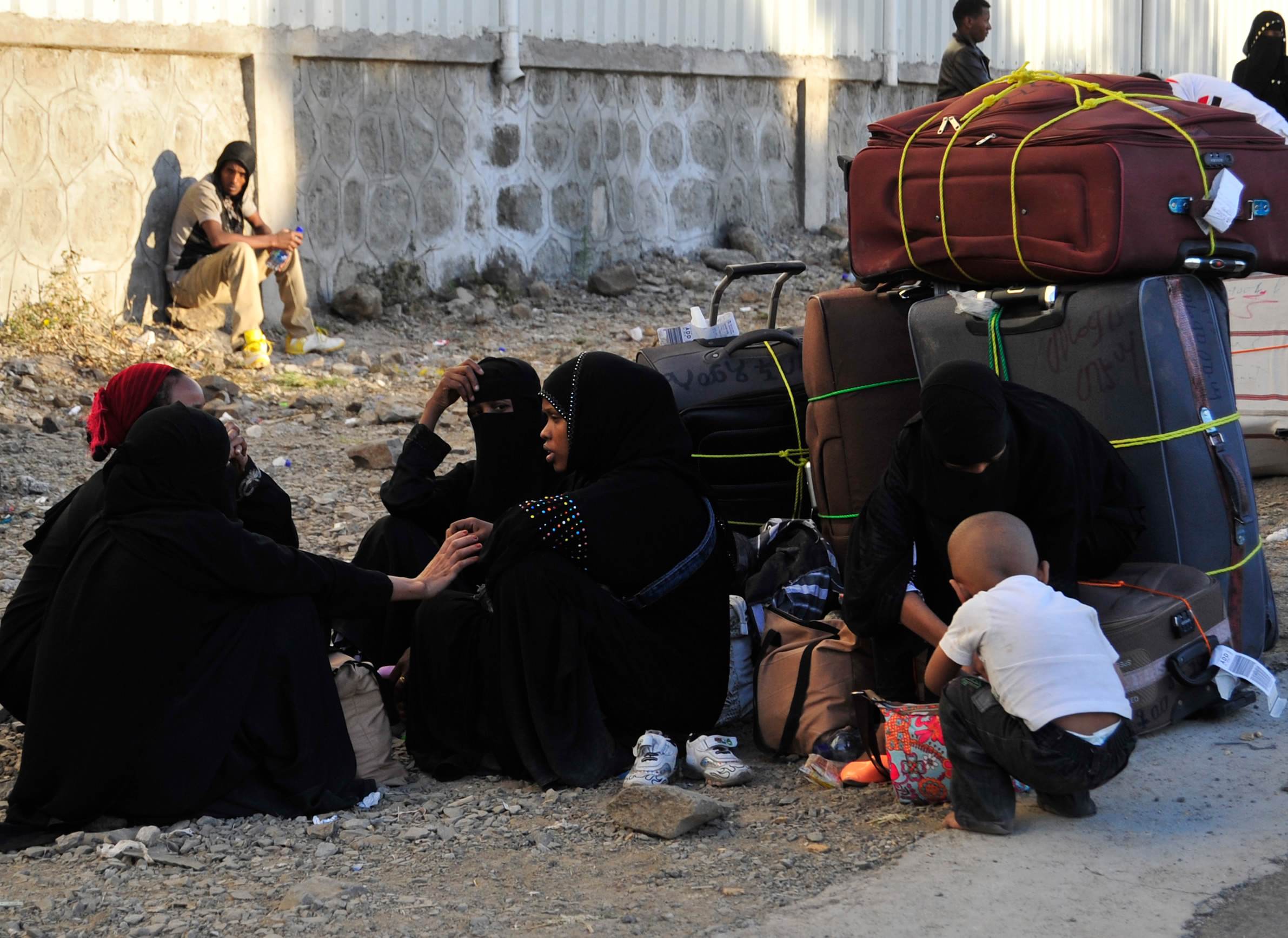
China
10:45, 03-Aug-2017
Some 70,000 Ethiopians return home

By CGTN Africa
Around 70,000 Ethiopians have returned home from Saudi Arabia after authorities issued notice for illegal workers to leave the country or face arrest.
Saudi authorities said there were nearly 400,000 Ethiopians working illegally in the Gulf state. Ethiopia’s foreign ministry said it was only able to register 130,000.
The rush home came as an extended 90-day amnesty ended on July 25.
Some of those arriving at the main airport in Addis Ababa said they were relieved to be home.
“I am so happy to come back home. I have lived in Arab countries for four years. I am saying no more migration. I will try to work harder and live in my own country,” said Lubaba Taju.
Ethiopia’s foreign ministry spokesman, Melese Alem said the government was working on creating opportunities and jobs for those coming back and millions in its population seeking employment but that this repatriation exercise had been unexpected.

AFP Photo
AFP Photo
“The government has some revolving fund to provide an opportunity for the youth in the country to create job opportunities and so forth. So our nationals who are repatriated from Saudi Arabia would be part of this initiative,” he said.
“The decree was issued without expectation of our side. And repatriating this magnitude and this number of population within this short period was another challenge. As you know Saudi Arabia is a very big country and our nationals are living in different corners of the country,” added Alem.
Saudi Arabia is trying to reduce unemployment among Saudis by sending illegal workers back home.
Millions of foreigners work in Saudi Arabia, doing many of the strenuous, dangerous and lower-paid jobs shunned by Saudi citizens.
Many of those that have come back to Ethiopia were house maids or nannies and reported working under tough conditions.
International human rights watchdogs have criticized Gulf countries, including Saudi Arabia, for the treatment of foreign workers.
The US State Department’s 2016 Trafficking in Persons report indicates that the abuses Ethiopian women face working as maids in the Middle East, include physical and sexual assault, the confiscation of their passports, withholding their salaries and confinement at work.

AFP Photo
AFP Photo
“They don’t have any sympathy for their maids. They don’t even consider us as human beings. They don’t think we can ever get tired at all. This makes you hate your life even though you want to at least have some savings to send back home and it is that mentality that makes you endure everything,” said Tirhas Fisseha, who lived and worked in Saudi Arabia for 5 years.
Although a state-led industrial drive has transformed Ethiopia into one of Africa’s fastest-growing economies, a third of its 99 million citizens still survive on less than 1.90 US dollar a day – the World Bank’s measure of extreme poverty.
Apart from travelling to the Middle East, thousands of Ethiopians also embark on risky boat journeys every year to seek economic opportunities in Europe.
Iftu Mohammed went to Saudi Arabia in 2014. She has five children and says she also supports her parents and siblings.
She expressed, “Even now, I plan to go to a different country. How can I sit here idle? I have a lot of expenses to cover and I have to feed these children, provide clothes, educate them and pay rent. How can I cover all this here? ”
While many of those targeted in the crackdown entered Saudi Arabia legally but later broke the terms of their residence permits by changing jobs, many others were smuggled across the border or came as pilgrims and did not return home.
8325km

SITEMAP
Copyright © 2018 CGTN. Beijing ICP prepared NO.16065310-3
Copyright © 2018 CGTN. Beijing ICP prepared NO.16065310-3